Legal disclaimer: The following information on specific laws and regulations does not constitute legal advice. As always, compliance with federal, state and local laws is ultimately your responsibility. We recommend that you consult with legal counsel to ensure your processes and procedures are fully compliant.
To watch a presentation over the FMCSA Clearinghouse, join us for our webinar on August 27th!
At Tenstreet, compliance is paramount. We stay on top of industry regulations and help carriers stay compliant in this dynamic regulatory environment. That’s why it’s common for carriers to come to us with questions about changes and updates to the FMCSA regulations and other legal issues affecting the trucking industry. Recently, we’ve gotten a lot of questions about the upcoming FMCSA National Drug and Alcohol Clearinghouse. This is our first out of two blogs we’ll write covering the U.S. drug and alcohol clearinghouse policy. We want you to know that we’re here for you and we’ll do all that we can to help you untangle the new DOT Clearinghouse program requirements.
Here are answers to some common questions we get:
[The following information is based on the current FMCSA announcements and is subject to change as the program develops. You can access the latest information released by the FMCSA Clearinghouse at clearinghouse.fmcsa.dot.gov where you can also subscribe to receive news and updates from the FMCSA about the Clearinghouse.]
What is the FMCSA CLearinghouse Commercial Driver’s License Drug and Alcohol Program?
The Clearinghouse FMCSA DOT gov is a secure, online database that will give employers, FMCSA, State Driver Licensing Agencies, and state law enforcement personnel real-time information about Clearinghouse CDL drivers drug and alcohol program violations, thereby enhancing safety on our nation’s roadways across the United States. An act of Congress directed the Secretary of Transportation to establish the Clearinghouse FMCSA DOT program.
Who does the Clearinghouse affect?
- Employers of CDL drivers who operate CMVs
- Drivers who hold CDLs or commercial learner’s permits (CLPs)
- Medical Review Officers (MROs)
- State Drivers Licensing Agencies (SDLAs)
- Substance Abuse Professionals (SAPs)
- Consortia/Third-Party Administrators (C/TPAs)
The Clearinghouse will only include CDL drivers who operate CMVs under 49 CFR part 382 that are required to participate in the FMCSA drug and alcohol testing program. It will not apply to non-CDL holders, individuals who operate CMVs with GVWRs between 10,001 and 26,000 pounds, or to results from a non-DOT drug or alcohol test.
What happens in the fall of 2019?
Authorized users must register and create an account to access the Federal Motor Clearinghouse. Registration is loosely scheduled for the fall of 2019. Visit www.clearinghouse.fmcsa.dot.gov to sign up to receive updates when resources for more specific dates and details become available.
What happens on January 6, 2020?
Implementation of the Clearinghouse begins January 6, 2020.
This means that it will become mandatory for carriers, MROs, substance abuse professionals, and consortium/third party administrators to report DOT drug and alcohol violations as well as return to duty processes.
Additionally, employers will be required to query the Clearinghouse FMCSA drug testing 2020 as a pre-employment check for all employees hired on or after January 6, 2020. Employers will be also be required to conduct at least a limited query of the Clearinghouse annually on all employees who hold a CDL.
Essentially this means that employers must ensure that no current or prospective employee is performing safety-sensitive functions (such as operating a CMV) after a drug-and-alcohol program violation if that person has not successfully completed a Return-To-Duty (RTD) process.
Current and prospective employees may also review their own records on or after this date.
Will employers still be required to request drug and alcohol information from the applicant’s previous employer?
Yes, employers will still be required to request drug and alcohol information from the applicant’s previous employers under 391.23. However, by January 6, 2023 (once three years of violation data are stored in the Clearinghouse) employers will no longer be required to request information from the previous employers as an employer’s query of the Clearinghouse will satisfy that requirement.
What information will the Federal Motor Clearinghouse contain?
Records of violations of the drug and alcohol prohibitions in 49 C.F.R. part 382, subpart B will include employees who:
- Reported for duty/remained on duty for safety-sensitive function with an alcohol concentration of 0.04, or greater or while using any drug specified in the regulations (Part 40) other than those prescribed by a licensed medical practitioner;
- Used alcohol while performing, or within four hours of performing, a safety-sensitive function;
- Used alcohol within eight hours of an accident, or until post-accident test, whichever occurs first;
- Tested positive for use of specified drugs;
- Refused to submit to a required alcohol or drug test.
The information will include results from carrier safety pre-employment testing, post-accident testing, random testing, reasonable suspicion testing, and reports of actual knowledge violations. The data provided by Clearinghouse records can greatly affect the careers of drivers.
What types of queries can be run, and is a release from the applicant required to query the Clearinghouse?
There are two types of queries, limited and full. Both require a release, but the way the release is obtained can vary. Read on to further unravel the Clearinghouse and learn more about each query type and its subsequent service requirements.
1. Limited Query – employers will be required to perform a limited query as an annual check on all currently-employed CDL holders to determine whether any records are found in the Clearinghouse.
- The FMCSA will provide a sample, limited-consent request form on their website for employers to use.
- Employers will need written consent from the employee, which can also be obtained outside of the Clearinghouse with an electronic or wet signature.
- If an employee refuses to provide consent, a query cannot be conducted and the employee must be removed from safety-sensitive functions.
- If no records are found in the limited query, no action is required by the employer.
- If records are found in the limited query, the employer must conduct a full query of the Clearinghouse within 24 hours.
- Written consent should be maintained in an employee’s DQF.
2. Full Query – employers will be required to perform a full query as a pre-employment check for all prospective drivers, or if a limited query returns showing information exists for a queried currently-employed CDL holder.
- Consent will need to be provided by applicants and employees electronically within the Clearinghouse.
- If consent is provided, violation details will be released to the employer or prospective employer (including RTD status).
- If consent is refused, the employer will be notified, the query will not be conducted, and the applicant or employee must be removed from safety-sensitive functions.
- If the applicant/employee has a violation and does not have an RTD status, employers must ensure that the driver is either removed from or is not placed in safety-sensitive functions.
What rights will an applicant/employee have within the Clearinghouse?
All applicants and employees who meet the inclusion requirements of the Clearinghouse will need to:
- Register with the Clearinghouse only when a full query is being conducted (i.e. they are seeking new employment or a limited query shows records of a violation). An employer cannot register for them; they must do so on their own.
- Provide or refuse consent to a full query,
- View their information in the Clearinghouse,
- Receive notifications of reports and employer queries,
- Identify an SAP that can enter RTD information, and
- Submit a dispute to correct any inaccurately reported information in the Clearinghouse.
How much will it cost?
The FMCSA reports that users will be charged a fee to conduct both a limited and full query within the Clearinghouse. However, they have not released any information about what that fee will be. There will not be a fee for registration or for reporting violations.
How will information be reported?
Information will be reported using an employee’s CDL number and state of issuance. The FMCSA will utilize CDLIS to track drivers with multiple license numbers.
Will there be record-keeping requirements?
Yes. Employers will be required to keep records of violations reported to the Clearinghouse for 5 years. Employers must also retain records of each query and all information received in response to a query for 3 years.
How will Tenstreet help me?
We understand this is a lot of information to straighten out, but we’ll be here for you in the following ways:
- We will provide you with information and updates as the FMCSA releases more information.
- We will register as a TPA with the Clearinghouse, so that carriers will be able to designate Tenstreet as their TPA.
- We will try to develop integrations to make the query process seamless for both carriers and drivers as more information becomes available.
Would you like to be walked through this and ask your own questions? Join us on August 27th for our FMCSA Clearinghouse webinar!



